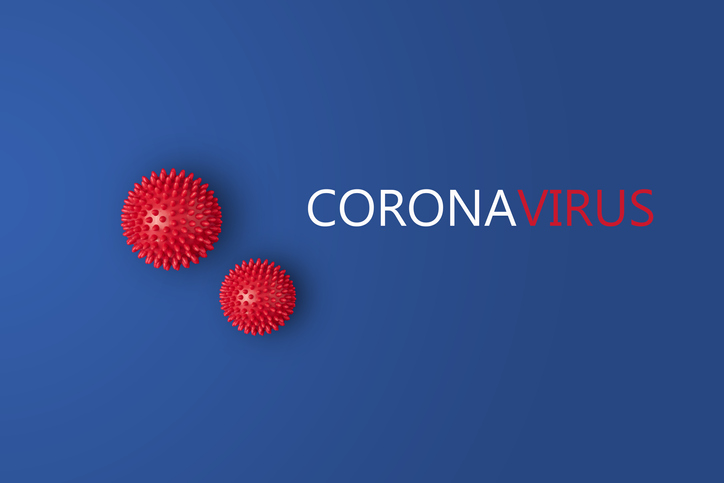Global View Investment Blog
Coronavirus May Cause the Second Bear Market since 2018; What Now?
In Brief:
We are all in this together. Stocks are down back to October of last year levels and might be going further before they bounce back. Your feelings about this are 80 percent of how it is presented. The odds are nearly certain this will be resolved favorably within the next year or maybe two years.
Here’s what you can do: Take care of yourself to boost your immune system. Don’t watch the daily news. As the U.S. Surgeon General has said, “The risk is low to the average American.” Especially if you are elderly and have a compromised immune system, you should avoid crowds, stop shaking hands, don’t fly.
We are doing the same things for ourselves as we are for clients. And we have the advice of the smart investment minds of the planet, through our portfolio managers. We will get through this.
More Detail:
Good news: This will eventually be resolved. When the shock is over, the economy and stocks will roar back. Since World War II, there have not been more people concerned about resolving a problem. I believe the odds of it being resolved within one to two years are nearly 100 percent. But I can’t guarantee it won’t and I can’t guarantee we won’t get a dinosaur killer asteroid!
Don’t confuse statistical risk with personal risk. Your feelings about this problem are 80 percent how it is presented to you, which is a good business model for the news. The odds that you or someone you love getting this and dying from this are very low. This is a problem on a timer. Stop binge watching virus porn, i.e. the news. “The risk is low to the average American.” U.S. Surgeon General.
The investments we own for you are the same ones we own in our personal accounts and even company 401(k). We have not changed our personal asset allocations but have put some money to work as prices have come down. The actual value (based on long-term earnings) has not changed of most companies.
The bad news: Some industries will be more impacted than others. Depending on geopolitical events, some industries will be permanently impacted. Because Russia has decided to drill for oil and sell at lower prices, this might put some higher-cost producers, like U.S. companies engaged in fracking, out of business. I can’t imagine the U.S. government won’t try to negotiate a better outcome with Russian and the Middle East. Stock prices could fall more before they start back up again.
Coronavirus (COVID-19) – What We Are Telling Clients
First recommendations – do what you can to control this.
When you can, make it your full-time job to relax, meditate or pray, exercise and get some sun and to eat well. Vitamin D (from exposure to the sun) and stress reduction will boost your immune system and improve your odds if you do get it.
Especially if you are over 60 or suffer from a reduced immune system due to other disease or ailment, stay out of crowds, don’t fly, avoid hand-to-hand contact. (It’s OK not to shake hands or hug for now.) While many are recommending not to use paper face masks, a study showed they were nearly as effective as the more sophisticated masks. The single most important thing to do, after avoiding contact, is to practice excellent hand hygiene. Scrub your hands for at least 20 seconds when you can’t use hand sanitizer, which you can make yourself using 60 percent alcohol and a moisturizing agent.
Stock Prices and the Economy
Stocks could move down even more and will likely go into a bear market. Remember the last bear market? It was the fourth quarter of 2018! And then 2019 saw a full recovery. I can’t know how it will unfold this time. But I can tell you that it will work to your eventual benefit as managers find more opportunities.
On Thursday, March 5, we had a conference call with the Chief Investment Officer (CIO) and economists at Pimco. Pimco is credible on the economy because they use their forecasts to determine how they invest bonds, which depend on the economy. Their basic thesis is that the virus “will be contained, which will lead to economic recovery.”
Pimco’s CIO Dan Ivasyn, who oversees the Pimco Income Fund and the Pimco Flexible Income fund for our clients, calls this a “humanitarian crisis creating a lot of fear and anxiety.” He reassured us that the process they follow reduces risk. This process has served clients well and he believes will continue to do so. Pimco hired outside consultants to assess the Coronavirus risk. Based on this, they believe the peak will be reached in the U.S., Europe and Emerging Markets around May or June. There is some potential it extends into December.
Tiffany Wilding, Pimco’s U.S. economist, believes the G7 nations will pursue a synchronized monetary response. Unfortunately, Central Banks can’t stop the spread of virus or supply shocks. In China, they see a return of business in the largest port cities. Because China is 30 percent of globally manufacturing activity, this will spread globally. They believe, based on this, the U.S. economy (GDP) will be negatively impacted about 1 percent. Because Europe is more interconnected, it is more likely to be affected, about 2 percent.
It will also impact global services. In the U.S., tourism and travel is 3 percent of the economy. Tiffany believes, based on the combination of these events, U.S. GDP growth could fall to 1 percent in the first quarter. The question is whether the recovery will be U shaped (long and slow) or V shaped (shorter time and rapid uptick). This depends on whether the virus is contained and whether there is a second wave this winter.
In a general sense, we advise maintaining the course. This will pass. Hopefully no one you know will be impacted. As Charlie Munger said recently:
- While there are fewer bargains now in U.S. stocks, it’s not as crazy as the Nifty Fifty or Tech Bubble of the late 1990s. In fact, many companies are simply worth more because they are more profitable in a sustainable way.
- Old moats are disappearing, which is a natural part of the economy. It’s not possible anymore to practice “blind” value investing, without an understanding of the underlying business.
- Avoid big mistakes by investing in bad businesses at high prices with weak balance sheets run by dishonest and incompetent people.
- Recognize when you are wrong and move on.
- More than anything, be true to yourself. Be authentic.
If you’re still tempted to try to time the market, please read this first, and in case I haven’t said so recently, we are always happy to talk!
Magical Thinking (Warren Buffett Doesn’t Do It)
In summary, let me say we are more interested in your personal well-being than anything else. We are doing what we can to mitigate the downside and are happy to talk. It might be helpful for you to know we are hearing very encouraging information from the portfolio managers who manage your and our investments.

Written by Ken Moore
Ken’s focus is on investment strategy, research and analysis as well as financial planning strategy. Ken plays the lead role of our team identifying investments that fit the philosophy of the Global View approach. He is a strict adherent to Margin of Safety investment principles and has a strong belief in the power of business cycles. On a personal note, Ken was born in 1964 in Lexington Virginia, has been married since 1991. Immediately before locating to Greenville in 1997, Ken lived in New York City.
Are you on track for the future you want?
Schedule a free, no-strings-attached portfolio review today.
Talk With Us






